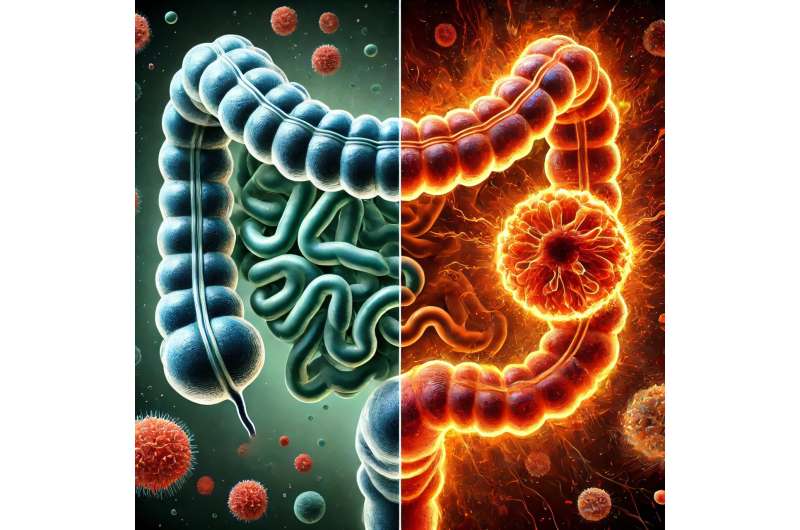Recent research has identified the protein hexokinase domain containing 1 (HKDC1) as a potential target for colorectal cancer therapy. HKDC1, a member of the hexokinase enzyme family involved in carbohydrate metabolism, has been found in elevated levels in patients with inflammatory bowel disease (IBD), a condition that increases the risk of colorectal cancer. A study conducted by researchers at the Cluster of Excellence “Precision Medicine in Chronic Inflammation” (PMI) revealed that removing the gene responsible for HKDC1 production in colon cancer cells inhibited tumor growth. This effect was observed across various experimental models, including cell cultures, organoids (artificial intestinal models), and mouse models.
The findings suggest that HKDC1 plays a significant role in the development and progression of colorectal cancer, particularly in individuals with IBD. By targeting HKDC1, new therapeutic strategies could be developed to effectively combat colorectal cancer. This research highlights the importance of understanding the molecular mechanisms underlying cancer progression to identify novel treatment targets. Click for More Details







